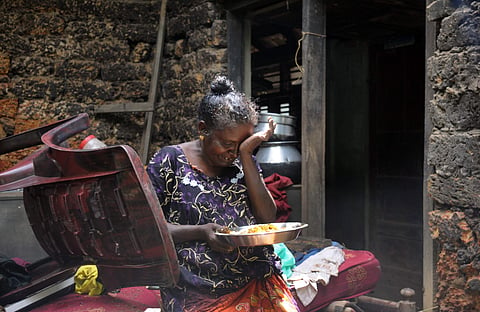

NEW DELHI: The row over the Centre’s decision not to accept the UAE’s offer to help rebuild Kerala took another turn on Thursday with two former foreign secretaries challenging the government’s stand.
While New Delhi officially stuck to its line that it could handle the devastating flood on its own, there were indications it might accept foreign aid for rebuilding infrastructure and long-term investments.
“True that as country we can give rather than take assistance, but 80% of Indians in the Gulf are Malayalis,” tweeted former foreign secretary Nirupama Menon Rao. “Offer of flood relief assistance must be treated with sensitivity. Saying no is simple, but for Kerala-in-crisis, it’s not so simple.”
Responding to her tweet, another former foreign secretary Shiv Shankar Menon said, “The 2004 decision was to not accept foreign participation in relief but accept it for long term rehabilitation case by case. No rescue teams needing hand-holding and interpretation but yes to help rebuilding houses, bridges, roads etc. A way forward for Kerala?”
Talmiz Ahmad, who served as India’s ambassador to Saudi Arabia, Oman and the UAE, has a different take. “Normally, India has not taken financial assistance on bilateral basis from foreign countries. Usually, where money is concerned, largely individuals, overwhelmingly Indian or Indian origin communities have contributed to the PM’s relief fund in our embassies or sent funds directly. I don’t recall any occasion where a foreign government has extended financial assistance.”
According to Ahmad, the Centre’s is the correct position. “It said we don’t need financial assistance, we’re capable of looking after my own people. What we need is relief supplies.” He added that during the earthquakes in Latur and Bhuj, India got a lot of material from the Gulf with prior consultation with the government.
“Having said that, however, my view is that the UAE government offered this assistance spontaneously on the basis of television stories and may not have consulted anybody in the government.”
Unfortunately, he says, “Whatever happens in India acquires a political dimension, in this case because you have a different government in the centre and the state. Sadly, you can’t get away from this. I would have personally preferred that these things were discussed quietly between officials concerned in Delhi and Kerala. If the politician has to posture in the public domain, let them. This is the sophisticated way to handle it. The people of Kerala are suffering a lot, they don’t need this kind of crap in their lives.”
Mohan Guruswamy, the founder president of the Center for Policy Alternatives, agrees. “The government is playing politics here,” he says. “We could have quietly accepted the aid, or we could have said that invest that kind of money in long term assets in Kerala, instead of this very undignified way of saying we don’t want your aid. Also, the central government is offering a meagre Rs 500 crore, which can’t deal with even a fraction of the enormous devastation in Kerala.”
According to him, “This is a gesture which cements friendships, investing in goodwill in a part of the country which is relevant to them. If there was a flood in Assam, I doubt if the UAE would have offered that kind of money.” He also added that the Emirs might take this kind of thing as a slap on their face. “An act of generosity which is voluntary and you say no it, it doesn’t send a good signal,” he said.
“This is not Mother Teresa kind of aid, to provide succor to people on the streets. This is to mitigate an immediate circumstance, and I think it is a big mistake not to accept it. We could have told the sehiks this is very generous, but kerala will benefit more if you invest in infrastructure and stuff like that. But we said no. This is bad optics, bad politics. This alienation of the south just gets deeper and deeper because of this. I don’t think there was any application of mind in Delhi. It’s a misplaced sense of pride. Everybody knows we have ineffective governments and systems. We can’t hide these things by refusing aid. Does that change the circumstances in India? 140 in the FDI index, 170 in the GDP index? Does it change the fact that 30% of India is below the poverty line? 68% below the UNDP mandated line?”